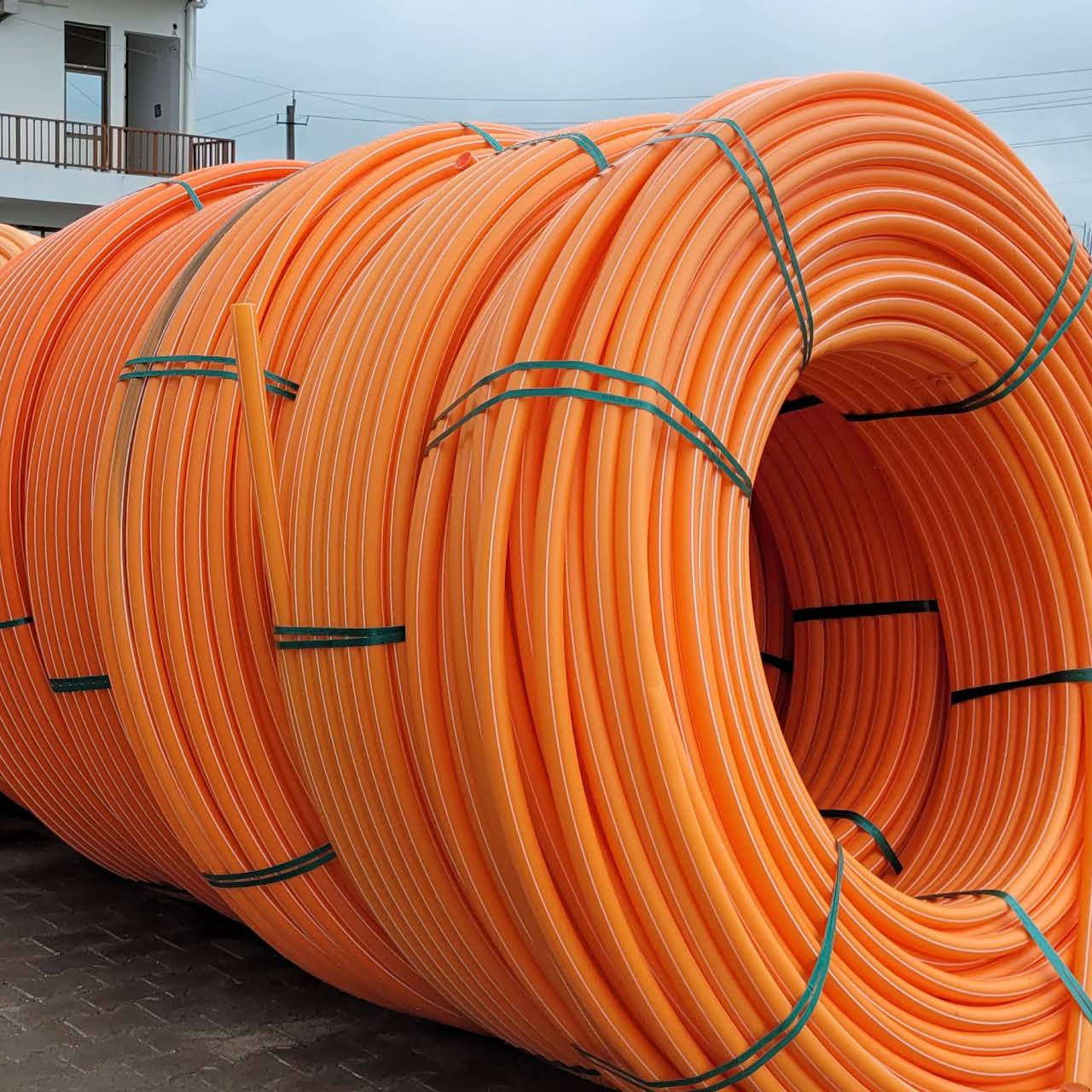Recognizing the Secret Perks of HDPE Pipe for Water and Wastewater Administration
Using HDPE pipe in water and wastewater monitoring presents countless benefits that merit factor to consider. Its remarkable resilience and lengthy life-span make it a favored option for several projects. In addition, the product's resistance to rust and chemical damage improves its reliability in different environments. However, the benefits extend beyond simply long life and resistance. Discovering its cost-effectiveness and environmental effect reveals even a lot more engaging factors for its extensive fostering in modern infrastructure
Exceptional Resilience and Long Life

HDPE pipe sticks out for its outstanding toughness and longevity, making it a recommended choice in water monitoring systems. Built from high-density polyethylene, these pipes can hold up against considerable stress and anxiety, ensuring trustworthy performance with time. Their durable nature enables them to withstand extreme environmental problems, including temperature level changes and dirt motions, which can cause various other materials to fail.
The life expectancy of HDPE pipes often goes beyond 50 years, giving a cost-efficient service for towns and industries alike. Furthermore, the material's light-weight residential or commercial properties streamline setup, lowering labor prices and durations. This longevity lessens the requirement for frequent repair work or replacements, better enhancing its economic charm.
In water administration applications, the reliability of HDPE pipelines means less disturbances and improved service connection, making them essential to lasting framework advancement. The combination of toughness and durability strengthens HDPE's function as a foundation in effective water administration remedies.

Resistance to Rust and Chemical Damage
While several materials catch deterioration and chemical damages in time, HDPE pipes display impressive resistance, making them perfect for numerous water administration applications. This durability stems from the molecular structure of high-density polyethylene, which is inherently non-reactive and does not corrode like metals or degrade from exposure to rough chemicals. Therefore, HDPE is extremely effective in settings with hostile substances, such as wastewater systems that might consist of acids, bases, and natural solvents.
Furthermore, HDPE pipelines can stand up to environmental aspects such as dirt acidity and saline conditions, even more improving their suitability for diverse applications (hdpe pipe fittings Midland TX). Their capacity to maintain structural honesty over time decreases the danger of leaks and failures, which is crucial in making sure the security and dependability of water circulation and wastewater administration systems. The resistance to rust and chemical damage markedly contributes to the total efficiency and long life of HDPE piping options.
Cost-Effectiveness and Financial Benefits
When taking into consideration the economic ramifications of water administration systems, the cost-effectiveness of HDPE pipelines comes to be obvious. These pipelines supply lower installment and upkeep expenses contrasted to conventional materials like steel or concrete. Their light-weight nature simplifies transport and installment, leading to lowered labor expenses. Additionally, HDPE pipelines display a long life expectancy, usually going beyond half a century, which converts to less substitutes and long-term financial savings.
The resistance of HDPE to deterioration and chemical damage decreases the requirement for expensive repair work and substitutes. The pipelines likewise sustain efficient water circulation, lowering energy expenses related to pumping systems. By reducing leaks and water loss, HDPE pipelines add to significant economic benefits for towns and sectors alike. Overall, the initial financial investment in HDPE piping can produce check here substantial financial returns over the life expectancy of the water administration system, making it a sensible choice for sustainable infrastructure advancement.
Ecological Sustainability and Decreased Impact
_-_Post_di_Facebook_-_Dimensioni_personalizzate_(1)_60cafdf20856f.png)
Convenience and Flexibility in Installment
Since of their distinct buildings, HDPE pipes offer impressive convenience and versatility in setup, making them ideal for a vast variety of applications. Their light-weight nature enables for simpler handling and transportation, reducing labor prices and setup time. HDPE pipes can be curved and shaped to fit various terrains and project demands, which is especially useful in testing atmospheres.
Additionally, their resistance to rust and chemical damages permits setup in varied settings without the requirement for specialized protective coatings. The capability to fuse joints produces a continuous, leak-free system, enhancing the general integrity and dependability of the installation. HDPE's adaptability likewise suits ground activity, decreasing the threat of damage in areas prone to changing soil. On the whole, these qualities make HDPE pipelines not only versatile yet additionally a recommended choice for water and wastewater monitoring systems.
Often Asked Inquiries
Exactly How Does HDPE Pipeline Compare to PVC in Water Administration Applications?
HDPE pipe offers premium versatility, resistance to rust, and longevity contrasted to PVC. Its lighter weight helps with much easier installation, while its long lifespan minimizes replacement expenses, making HDPE a favored option in water administration applications.
What Is the Life Expectancy of HDPE Water Lines Under Common Conditions?
Under typical conditions, HDPE pipelines can have a lifespan ranging from 50 to 100 years. Their sturdiness and resistance to deterioration add to their long-lasting performance in numerous applications, making them a reliable selection for infrastructure.
Are HDPE Water Lines Recyclable After Their Service Life?
Yes, HDPE pipelines are recyclable after their life span. hdpe pipe in stock Midland TX. They can be processed and repurposed into brand-new products, substantially reducing environmental impact and promoting sustainability within the market, making them an environment-friendly selection for piping services
What Is the Setup Process for HDPE Pipes?
The installment procedure for HDPE pipes involves site preparation, trenching, pipeline blend or mechanical signing up with, backfilling, and pressure screening. Appropriate techniques ensure a sturdy and efficient system for transferring water and wastewater successfully.
Can HDPE Pipeline Be Used for Both Drinkable and Non-Potable Water Systems?
Yes, HDPE pipelines can be made use of for both drinkable and non-potable water supply. Their convenience, longevity, and resistance to corrosion make them appropriate for numerous applications, making certain safe and efficient transport of water in various contexts.